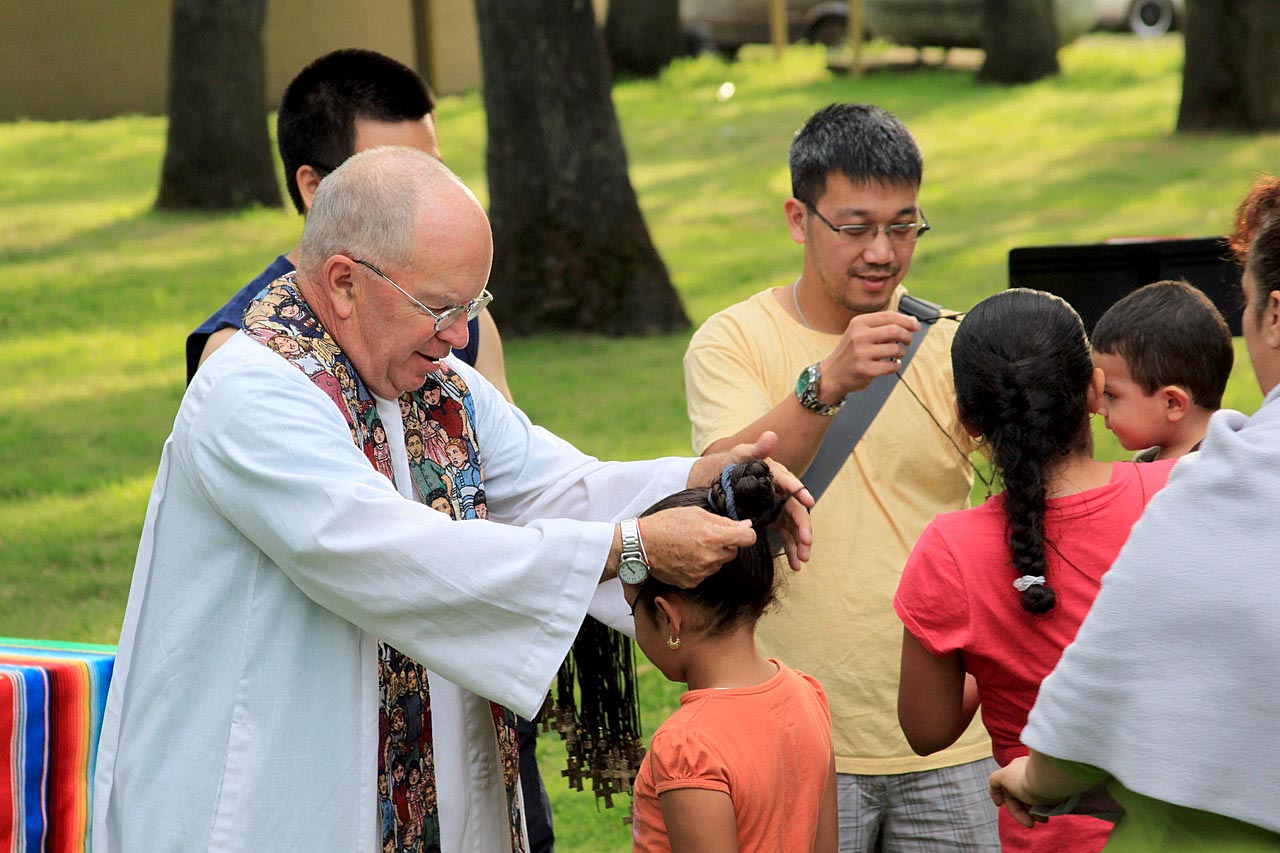4. Seeking new ways: The extraordinary is the ordinary, and the ordinary is extraordinary
Lo extraordinario es ordinario y lo ordinario es extraordinario
Comencé esta semana reflexionando sobre la pregunta, “¿Qué significa el sacerdocio católico para mí”? Como redentorista, nuestras constituciones dicen que debemos servir a “aquellos a quienes la Iglesia aún no ha podido proporcionar suficientes medios de salvación”. Esta declaración no pretende ser una crítica de lo que está sucediendo en el ministerio ordinario de la Iglesia. El ministerio ordinario de la Iglesia es repetible, organizado y puede programarse para satisfacer las necesidades de muchas personas. Al estar preocupado por grupos grandes de personas en el ministerio ordinario, es difícil ocuparse de las necesidades individuales de las personas en crisis. Una crisis llama la atención sobre las necesidades de las personas que no encajan en las rutinas ordinarias de una parroquia.
La crisis de COVID ha interrumpido tanto la vida ordinaria de las personas que incluso las cosas más comunes que hacemos en el ministerio de la iglesia deben reconsiderarse. Primeras Comuniones, Matrimonios, funerales, programas de educación religiosa y cualquier actividad que congregue a mucha gente se pospusieron en los primeros días de la pandemia, pero a medida que pasa el tiempo, ahora estamos haciendo ajustes que no se hubieran imaginado antes de la pandemia. Las personas acostumbradas a la rutina en el ministerio están aprendiendo nuevas formas de hacer las cosas.
En realidad, para los pobres, hacer ajustes ha sido durante mucho tiempo parte de la vida. Para las personas cuyas vidas no son estables, recibir atención por los sacramentos y los momentos de dolor siempre ha sido algo fuera de lo común. Si bien la comunidad estable está aprendiendo a hacer ajustes debido a la crisis, es importante que las parroquias reconozcan que los pobres a menudo no han sido parte del ministerio ordinario de la iglesia debido a las demandas del trabajo, la inmigración y el trabajo estacional. Es importante que los líderes religiosos se tomen el tiempo no solo para brindar flexibilidad en nuestros programas sacramentales necesarios durante la crisis de COVID, sino también para reconocer a aquellos que a menudo no pueden participar en el ministerio “ordinario” de la Iglesia.
Sigo buscando ayuda
Ayúdame a preparar un programa sacramental para niños con necesidades especiales y tiempo limitado de preparación.
Por favor comparte conmigo tus recuerdos. Escribir a: [email protected]
The extraordinary is ordinary and the ordinary is extraordinary
I began this week reflecting on the question, “What the Catholic Priesthood Means to Me?” As a Redemptorist, our constitutions say that we are to serve “those for whom the Church has not yet been able to provide sufficient means of salvation.” This statement is not meant as a critique of what is happening in the ordinary ministry of the Church. The ordinary ministry of the Church is repeatable, organized and can be scheduled to meet the needs of many people. Being concerned about large groups of people in the ordinary ministry, it is difficult to engage in the individual needs of people in crisis. A crisis brings attention to needs of people that do not fit into the ordinary routines of a parish.
The COVID crisis has so interrupted the ordinary lives of people that even the most common things we do in church ministry have to be reconsidered. First Communions, Marriages, funerals, religious education programs, and any activity that gathers many people were postponed in the early days of the pandemic, but as time has passed, we now are making adjustments that would not have been imagined before the pandemic. People accustomed to routine in ministry are learning new ways of doing things.
Actually, for the poor, making adjustments has long been part of life. For people whose lives are not stable, receiving attention for sacraments and moments of grief has always been out of the ordinary. While the stable community is learning to make adjustments because of the crisis, it is important that parishes recognize that the poor have often not been part of ordinary ministry in the church on account of demands of work, immigration and seasonal work. It is important that religious leaders take time to not only provide flexibility in our sacramental programs needed during the COVID crisis, but also recognize those who often are unable to participate in the “ordinary” ministry of the Church.
Still looking for help
Help me prepare a sacramental program for children with special needs and limited time for preparation.
Please share with me your memories. Write to: [email protected]
Oh Jesús, tú nos llamas: “Síganme”. Bendice, Señor, a todos los que acogen tu llamado. Puede que el camino no sea fácil, pero tenemos la confianza de que todo es posible si caminamos contigo. Que este viaje nos abra los ojos a las maravillas de tu amor por nosotros. Oramos por toda tu gente, por todos los creyentes e incrédulos, por los líderes y seguidores. Oramos por la sanación, el perdón, la compasión, la justicia y la paz. Oramos para que, al seguirte, nosotros también podamos ser pescadores de hombres. Bendícenos en nuestro viaje.
O Jesus, you call us, “Come after me.” Bless, O Lord, all who welcome your call. The path may not be easy, but we have confidence that all things are possible if we walk with you. May this journey, open our eyes to the wonders of your love for us. We pray for all your people, for all believers and unbelievers, for leaders and followers. We pray for healing, for forgiveness, for compassion, for justice, for peace. We pray that as we follow you, we too can be fishers of men. Bless us on our journey.



